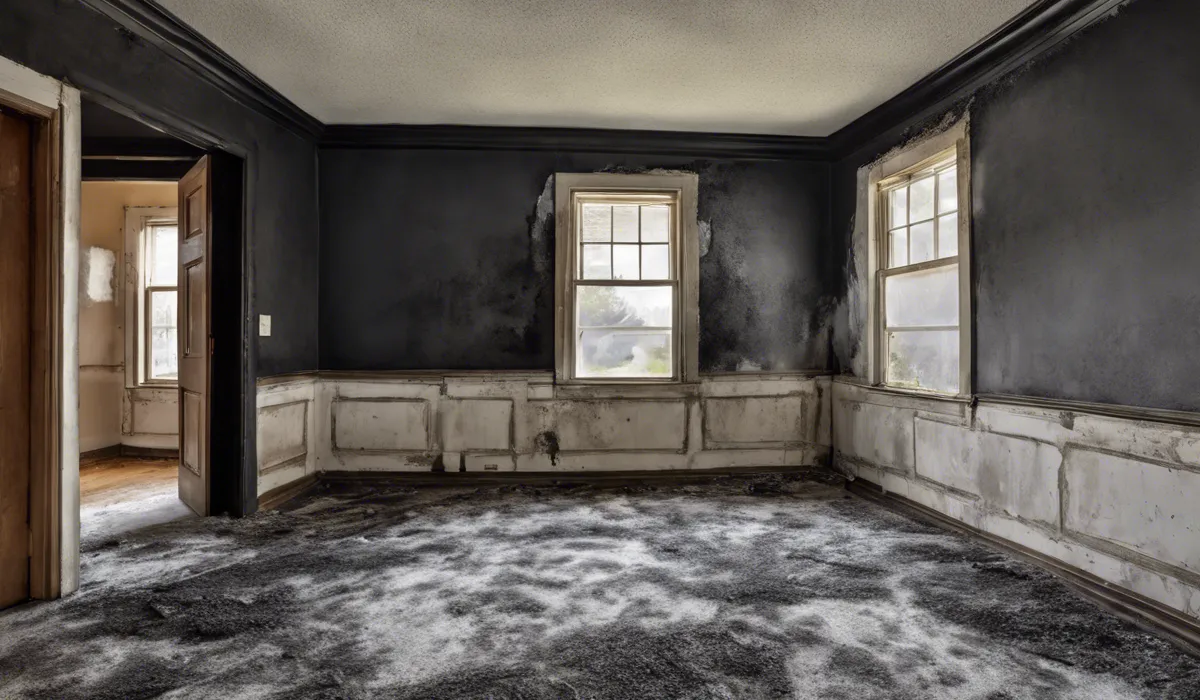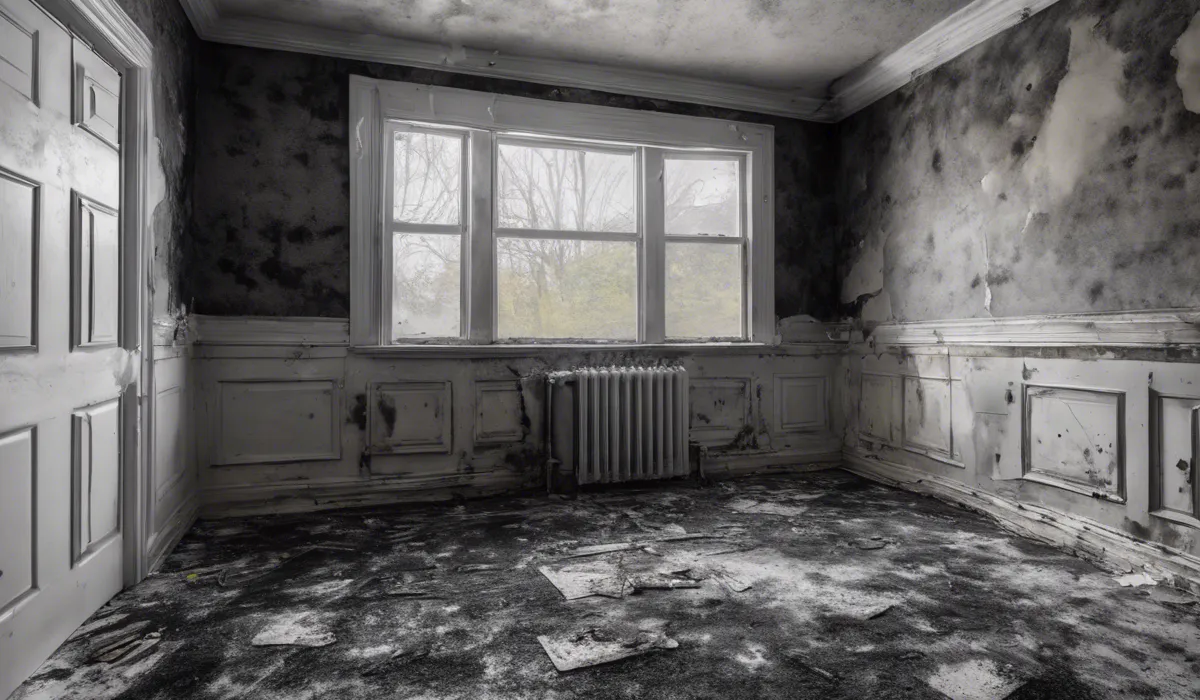Landlords are generally responsible for black mold in rental properties, especially if it stems from building issues like leaks or poor ventilation. They must ensure habitable conditions, which includes addressing mold promptly to safeguard tenants’ health.
Understanding Black Mold: What It Is and Its Health Implications

Explanation of Black Mold (Stachybotrys chartarum)
Black mold, scientifically known as Stachybotrys chartarum, is a type of fungus that appears as dark black or greenish-black patches.
It thrives in damp, warm, and humid conditions and can grow on materials with a high cellulose content, such as drywall, cardboard, and wood.
When conditions are right, black mold produces spores that can spread throughout a home.
Common Causes and Environments Where Black Mold Thrives
Black mold commonly takes hold in environments that have suffered water damage or have persistent moisture problems.
Leaky pipes, flooding, and poor ventilation create ideal conditions for mold growth. Bathrooms and basements are particularly susceptible due to their high humidity levels.
Health Risks Associated with Black Mold Exposure
Exposure to black mold can lead to health issues, especially for individuals with respiratory conditions, compromised immune systems, or allergies.
Symptoms may include coughing, sneezing, skin rashes, and in severe cases, chronic lung illnesses. It’s crucial to address mold infestations promptly to protect residents’ health.
Landlord Responsibilities Regarding Black Mold

Legal Obligations Under Housing Codes and Landlord-Tenant Laws
Landlords must comply with local housing codes and landlord-tenant laws, which typically require them to maintain habitable living conditions.
This includes ensuring that rental properties are free from severe mold infestations that could harm tenants’ health.
Circumstances Under Which a Landlord Is Responsible
Landlords are generally held responsible for black mold when it results from issues with the property’s structure or maintenance, such as leaks or inadequate ventilation.
They are expected to address these problems promptly to prevent mold growth.
Preventative Measures and Maintenance Duties of Landlords
To prevent black mold, landlords should regularly inspect properties for signs of moisture, repair leaks swiftly, and ensure that ventilation systems are functioning correctly.
Educating tenants on how to avoid creating a mold-friendly environment is also beneficial.
Tenant Notification Requirements When Black Mold Is Discovered
When black mold is identified, landlords must inform tenants immediately and outline the steps being taken to remediate the issue.
Communication is key to ensuring that tenants are aware of potential health risks and the timeline for resolving the mold problem.
Tenant Rights and Steps to Address Black Mold Issues

Tenant’s Role in Preventing Mold Growth
Tenants can play a significant role in preventing black mold by maintaining a clean, dry living environment, using dehumidifiers if needed, and promptly reporting water leaks or condensation to their landlord.
How Tenants Should Report Black Mold to Their Landlord
If a tenant discovers black mold, they should report it to their landlord in writing, providing detailed information and, if possible, photographic evidence.
This creates a record of the issue and initiates the landlord’s duty to address it.
Legal Recourse If a Landlord Fails to Address Black Mold Problems
Should a landlord not take action to remediate black mold, tenants may have legal recourse.
This could include withholding rent, paying for mold removal and deducting the cost from rent, breaking the lease without penalty, or suing for damages.
Remediation Process and Tenant Relocation Rights During Cleanup
Remediating black mold often requires professional services. During this process, tenants may need to relocate temporarily.
Depending on local laws, landlords may be required to provide alternative accommodations or compensate tenants for their relocation expenses.
FAQs About Landlord Responsibility for Black Mold
Is a landlord always responsible for black mold in a rental property?
Landlords are typically responsible for black mold if it results from building issues such as leaks or inadequate ventilation that they are required to address to maintain habitable living conditions.
What should a tenant do if they find black mold in their rental unit?
Tenants should report black mold to their landlord immediately to ensure it is addressed swiftly to minimize health risks and property damage.
Can a landlord be held liable for health issues caused by black mold?
Landlords may be held liable for health problems arising from black mold if they fail to remedy the issue promptly and it can be proven that their negligence led to the tenants’ health issues.
Are there any situations where a tenant might be responsible for black mold?
A tenant might be responsible for black mold if it occurs due to their own actions or neglect, such as creating excessive moisture without proper ventilation.
What are the obligations of a landlord once black mold is reported in a rental property?
Once black mold is reported, landlords are obligated to inspect the property, determine the cause, and take appropriate actions to remove the mold and fix any underlying issues such as leaks or ventilation problems.
Final Thoughts
Landlords bear the responsibility for black mold in rental properties, particularly when it results from structural issues such as leaks or inadequate ventilation.
It is their duty to maintain habitable living conditions, which entails promptly addressing any mold problems to protect the health and well-being of their tenants.
